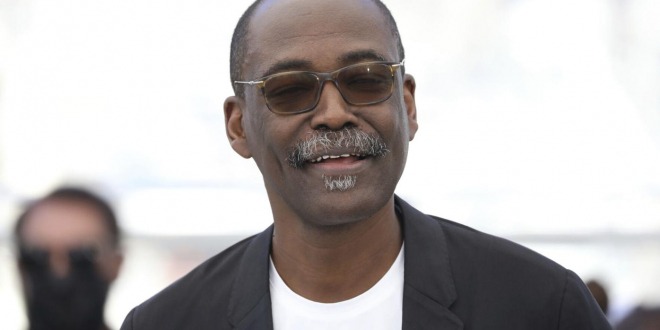Mahamat-Saleh Haroun, whose drama “Lingui” was a standout of the Cannes Film Festival’s first week, has a particular relationship to his native country Chad as a director.
Haroun is arguably the most well-known of the African nation’s few film filmmakers. He bears a great deal of responsibility in his capacity as national cinematic representative.
In an interview, Haroun remarked, “If I don’t bring images from Chad, my country will be forgotten,” He continued, “I have to make films to give other images of my country, rather than the cliche’ images of war. Et cetera. It becomes more than a passion. It becomes a duty.”
Haroun, who has lived in France since 1982, has filmed all but one of his eight films there. His first film with a female heroine, “Lingui,” is competing for the coveted Palme d’Or prize at Cannes.
Amina (Achouackh Abakar Souleymane) is a practicing Muslim single mother whose 15-year-old daughter, Maria (Rihane Khalil Alio), is pregnant. Unwanted pregnancy is a major worry on the outskirts of Chad’s capital, N’Djamena. Maria will very certainly be shunned, a stigma she shares with her mother.
In Chad, abortions are only authorized if the woman has been sexually assaulted or her life is in imminent danger. Because of the enormous barriers to abortion, it is almost impossible to obtain one, and it is frequently done in an unsafe manner at home.
“When I’m in Chad, a lot of people tell me: ‘You have to produce a film about this subject,'” Haroun adds. “You are the director of photography. You must become our spokesperson and produce this film, this topic. We are unable to do so because we are terrified of the government. ‘You certainly can.”
He went on to say, “I belong to the community.” He said, “I am the one who can tell stories that they deny.”
The title “Lingui” comes from a Chadian phrase that means “common thread” or “sacred bond.” It vividly conveys a covert sisterhood in a male-controlled culture, using brilliant local color and nonprofessional actors. Haroun sees it as a tribute to the women of the country.
Haroun served as Chad’s minister of culture for a year until quitting in 2018 due to differences with the government. He plans to screen “Lingui” around the country in September, he claims.
The film has garnered positive reviews from reviewers in Cannes, which Haroun finds encouraging but not entirely surprising.
He grins as he continues, “I’m a cooker, you know, so I know when something is well done.”
Only one African film has ever won the Palme d’Or at Cannes: Algerian director Mohammed Lakhdar-1975 Hamina’s feature “Chronicle of the Years of Fire.”
Haroun previously won a medal at Cannes in 2010 for his civil war drama “A Screaming Man,” which earned the jury prize. Mati Diop’s Senegalese drama “Atlantics” won the Grand Prix at the 2019 Cannes Film Festival. There are two African films in competition this year; the other is Moroccan director Nabil Ayouch’s film. “Casablanca Beats.”
“We are coming and coming and coming,” says Haroun, smiling. “We knock on the door. We try.”

